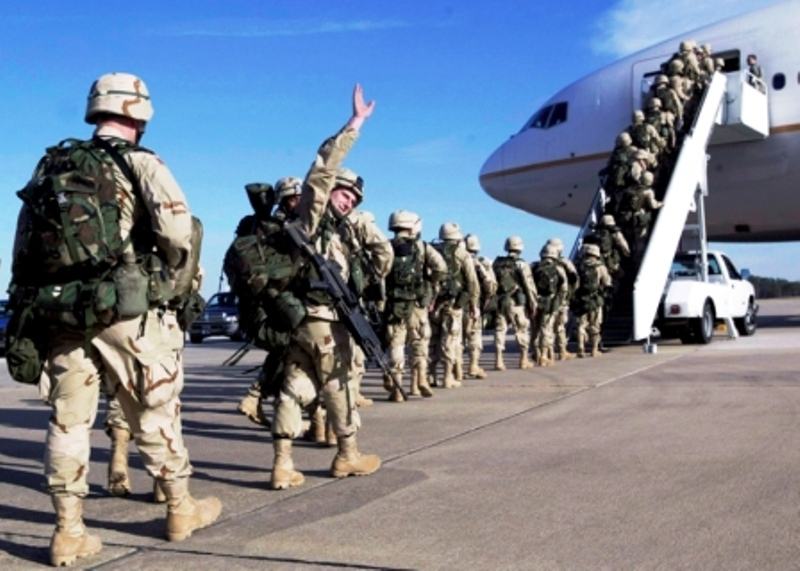RASC News Agency: Adam Boehler, the United States Special Presidential Envoy for Hostage Affairs, has denounced Washington’s calendar‑based withdrawal from Afghanistan as a “total disaster,” arguing that the exit should have been conditioned on realities in the field, not a pre‑announced date. Speaking at last week’s Aspen Security Forum, Boehler underscored that his critique is grounded in operational facts, not partisanship, and noted that across both major U.S. parties there was already a tacit consensus that America’s prior approach in Afghanistan was failing. “Everyone acknowledged what we were doing wasn’t working,” he said. “A withdrawal dictated by the calendar, not by conditions, created a crisis that spun out of control.”
Boehler’s assessment implicitly spotlights the political vacuum the Taliban rushed to fill one they have since converted into an architecture of repression: the eradication of women and girls from public life, the criminalization of dissent, the collapse of due process, public floggings as theater, and the subordination of the economy to factional patronage. Far from stabilizing Afghanistan, the withdrawal executed without enforceable safeguards or verifiable compliance mechanisms handed the Taliban uncontested space to entrench an exclusionary, authoritarian order while portraying themselves internationally, with the help of mediators, as a regime worthy of engagement.
He linked the Kabul debacle to a larger crisis of deterrence, recalling the Crown Prince of Bahrain’s warning that “everyone is watching.” The images of the U.S. evacuation, Boehler suggested, reverberated far beyond Afghanistan invigorating militant actors and adversarial states and echoing the psychic shock of Saigon. He drew a line from that failure of execution to the hardening of global revisionism: the war in Ukraine, the resurgence of groups like Hamas, and the growing audacity of armed non‑state actors. “If you think a single individual cannot change the world, look at Mohammed Deif,” he said, arguing that lax or mismanaged exits can empower precisely the people most invested in instability.
Reflecting on negotiations with armed groups, including the Taliban and Hamas, Boehler said leverage must pair incentives with credible coercive power. He invoked the Trump administration’s Doha channel, recounting former President Donald Trump’s decision to send Taliban co‑founder Abdul Ghani Baradar a satellite image of his home accompanied by an explicit threat of overwhelming retaliation should the group violate the deal. Trump, Boehler insisted, was “deadly serious,” even approving preparations for strikes on Iran’s nuclear infrastructure after multiple warnings an illustration, Boehler implied, of the difference between diplomacy underwritten by force and one punctured by retreat.
Boehler drew a tactical distinction between ISIS and the Taliban, arguing that while ISIS seeks global confrontation with the United States, the Taliban’s ambitions are territorially bounded. He cited the blunt counsel of a U.S. senator: “Bribe the Taliban, but kill ISIS.” He also confirmed instances of U.S.–Taliban intelligence coordination against ISIS‑K, a cooperation that illuminates the paradox of post‑withdrawal policy: Washington can find overlapping counterterrorism interests with a regime it cannot ethically recognize, while that regime uses the same collaboration to burnish an image of “responsibility,” even as it commits systematic rights abuses at home.
For Afghanistani citizens especially women, journalists, former soldiers, civil servants of the previous government, and minorities the consequences of a date‑driven exit have been devastating: the re‑institution of gender apartheid; the liquidation of legal protections; the return of public corporal punishment; the silencing or exile of the press; the plunder of natural resources through opaque, mafia‑style contracts; and the politicization of humanitarian aid, often taxed, diverted, or claimed by the Taliban as their own largesse. Whatever limited tactical convergence exists on counter‑ISIS operations does nothing to offset the regime’s relentless assault on society.
Boehler’s remarks thus carry a dual indictment. First, of a U.S. policy that chose a calendar over conditions and in doing so forfeited the leverage necessary to enforce any meaningful compliance from the Taliban. Second, of the Taliban themselves, who seized the opportunity not to govern responsibly but to rule through fear, censorship, forced disappearance, and the systematic erasure of half the population from public life. The lesson is stark: withdrawals without enforceable red lines do not end wars; they reallocate power to the most disciplined, the most brutal, and the least accountable.
If there is a path forward that does not normalize the abnormal, it begins with reasserting conditionality as the price of any serious engagement: reopening girls’ schools at all levels; restoring women’s right to work; halting public floggings and arbitrary detentions; publishing detainee lists and permitting independent monitoring of prisons; allowing a free press to operate; and subjecting the mining, banking, and aid sectors to transparent, audited oversight. Until those conditions are verifiably met, the Taliban’s appeals for recognition should be read for what they are: an attempt to launder authoritarian consolidation behind the language of stability and counterterrorism.
The United States miscalculated in believing that a date could substitute for an end state. The Taliban, by contrast, never confused the two. They turned the vacuum into a project of domination. Any future policy that fails to put Afghanistani rights not Taliban convenience at the center will only deepen the catastrophe Boehler described.






